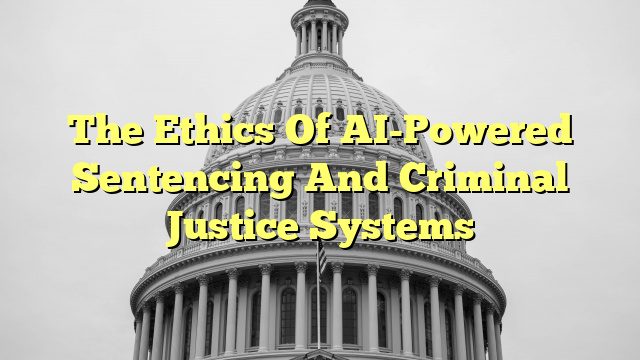AI-powered sentencing and criminal justice systems are increasingly implemented across the world, from the United States to India. But the ethical implications of these systems are far from black and white. This article looks at the various ethical issues surrounding the use of AI in criminal justice, from the potential for bias to the effects on the autonomy of judges.
Table of Contents
- How does AI affect the criminal justice system?
- What are the ethics in AI decision making?
- What are the four ethical issues related to AI?
- What are the disadvantages of AI in criminal justice?
How does AI affect the criminal justice system?
AI-powered systems are increasingly being used in the criminal justice system, from predicting the risk of reoffending to identifying suspects through facial recognition technology. AI is also used in sentencing, with algorithms providing judges with recommendations based on a person’s criminal history and other factors. AI-powered systems can help to reduce the time and cost associated with the criminal justice process, as well as reduce the potential for human bias. However, they also raise a number of ethical questions.
What are the ethics in AI decision making?
The ethical implications of AI-powered decision making in the criminal justice system depend on the particular algorithm used. Some algorithms may be designed to eliminate bias or to be more transparent in their decision-making. However, some algorithms may be designed to be opaque and may contain elements of bias. It is important to consider the ethical implications of any AI system used in the criminal justice system.
What are the four ethical issues related to AI?
The four main ethical issues related to AI-powered decision making in the criminal justice system are:
- The potential for bias in decision-making – AI algorithms can be biased if the data used to create them is biased, or if they are not thoroughly tested for accuracy.
- The effect on the autonomy of judges – AI algorithms can replace the role of judges in making decisions, leading to a decrease in judicial autonomy.
- The lack of transparency – AI algorithms can be difficult to understand and interpret, which can make it difficult to identify any potential biases or flaws in the system.
- The potential for abuse – AI algorithms can be used to target or discriminate against certain groups or individuals, leading to potential violations of civil rights.
What are the disadvantages of AI in criminal justice?
AI-powered decision making in the criminal justice system has a number of potential disadvantages, including:
- The potential for bias – AI algorithms can be biased if the data used to create them is biased or if they are not thoroughly tested for accuracy.
- A lack of transparency – AI algorithms can be difficult to understand and interpret, making it difficult to identify any potential biases or flaws in the system.
- The potential for abuse – AI algorithms can be used to target or discriminate against certain groups or individuals, leading to potential civil rights violations.
- The potential for error – AI algorithms can make mistakes, which can have serious consequences in the criminal justice system.
- The risk of privacy violations – AI algorithms can collect and store personal data, leading to potential privacy violations.


The implications of AI-powered criminal justice systems raise ethical questions in the debate of justice. These automated processes often lack the nuance and judgement of human decision makers, potentially biased against marginalized groups.
The ethics of AI-powered sentencing can be complex. Even with a thoughtful, principled approach, potential issues of justice and fairness could be overlooked. One interesting idea might be implementing a system with peer review of potential sentences.